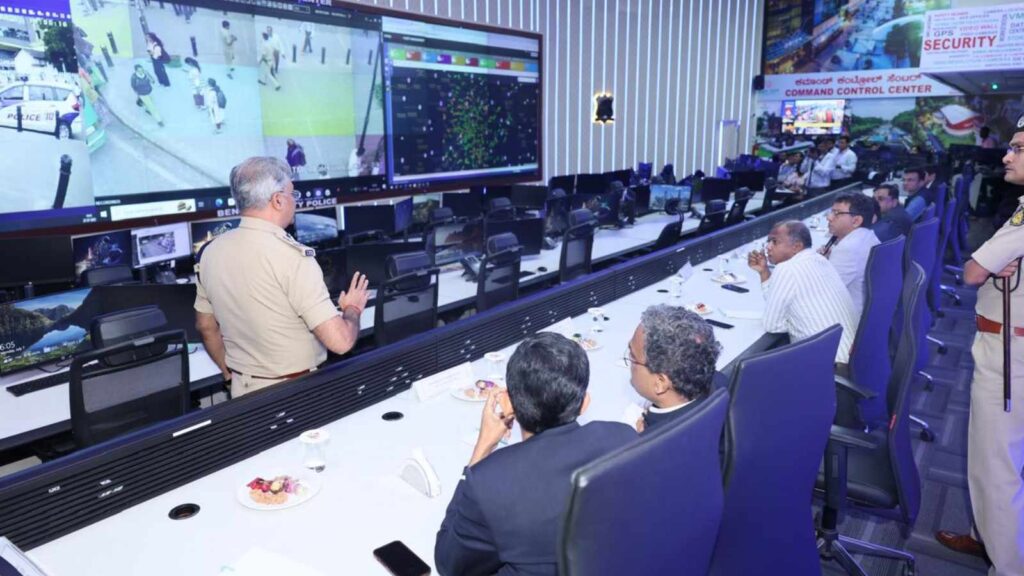Beside the commissioner’s office in Bengaluru lies a control room within the walls of a newly constructed command centre. This is a place that never sleeps. This is Bengaluru’s Emergency Control Room – known simply as ‘112’ – where every ring of the phone could be the start of a life-saving rescue, a high-stakes investigation, or sometimes, a heartbreaking mystery.
As per the data from June 11, 2025, to July 8, 2025, the control room has fielded over 17,000 calls – each one acted upon by trained personnel working around the clock in three shifts. The command centre is managed by BVG India, a private agency contracted by the police.
According to Jyothi T, audit in-charge and trainer at the centre, “Eighty-seven per cent of these calls are genuine emergency-related cases.”
The remaining calls are blank, or even fake calls that are vulgar in nature, often targeted at women responders, she added.
Despite the misuse of the service, Jyothi said, the team has maintained an “impressive average response time of just three seconds to pick up a call and under two minutes to dispatch police teams.”
The centre uses both auto-dispatch and manual dispatch systems. The centre trainer said that dispatches are always based on vehicle proximity to the incident location, with vehicles known as Hoysala patrol units being alerted, and responders cutting through city traffic to reach a caller in distress.
Traffic-related grievances top the list of calls that are received by the centre. Complaints range from congestion at key junctions to unruly crowds. Public disturbances and crowd management cases also spike during festivals or political events.
Story continues below this ad
However, there are more serious – and sometimes tragic – calls too. “We get multiple suicide alerts, murder reports, and missing persons cases every week,” said Jyoti.
Not every call is routine, with some remaining etched in the memories of the responders. Describing one such case, Jyoti said, “During Ugadi last year, a 28-year-old woman called us crying at 2 am. She said her husband was beating her, and her children were dead. But then she said, ‘They are right in front of me, speaking to me’.”
“It turned out that the woman was reportedly suffering from mental illness, and she had suffocated her two children and killed her husband. The children were found dead in festive clothes, adding a chilling layer to an already tragic case,” she added.
Even amidst incidents like these, the system stays operational. “We log, assess, and dispatch,” said Jyoti, adding that “we can’t afford errors or delays.”
Story continues below this ad
In addition to 112 calls, the centre oversees 7,500 CCTV cameras placed across Bengaluru, all maintained by Honeywell Aerospace Technologies. These include PTZ (Pan-Tilt-Zoom) cameras, HD units, Automatic Number Plate Recognition (ANPR) cameras (876 in number), and Facial Recognition System (FRS) cameras (1,500 in number).
(Bhoomika Roy Bannerjee is an intern with The Indian Express)


